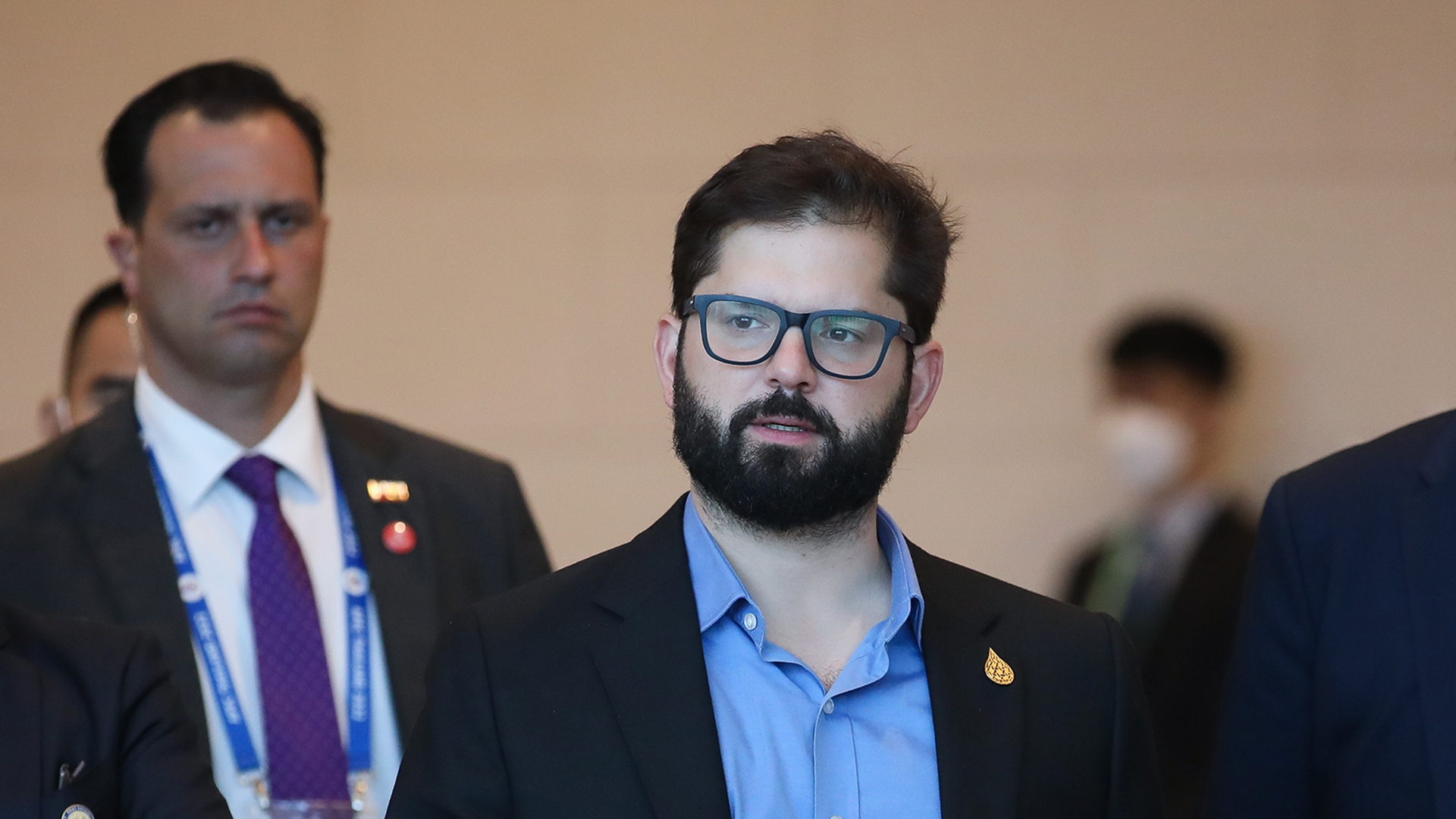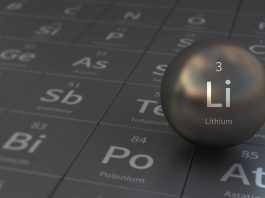Innovation News Network brings you everything you need to know about Chile’s National Lithium Strategy.
Chile, the second largest lithium producer worldwide, has recently implemented its National Lithium Strategy to increase production while mitigating environmental concerns.
Under the leadership of President Gabriel Boric, the strategy focuses on fostering public-private partnerships and ensuring equitable revenue distribution within the industry rather than pursuing nationalisation.
The Chilean government remains committed to supporting private investment in the lithium industry and recognises the untapped potential of unexplored salt flats to support global lithium supply chains.
By prioritising public-private partnerships instead of nationalisation, President Boric aims to strike a balance between economic growth and environmental sustainability in the lithium industry.
This approach acknowledges that private investment is crucial in driving innovation and efficiency within the sector while emphasising fair revenue distribution among stakeholders involved.

In this article, we will delve into Chile’s ambitious lithium policy, exploring its goals and objectives, its potential impact on lithium production, and examining public-private partnerships formed under this policy. Additionally, we will discuss reactions to the policy announcement and provide insights into future prospects for Chile’s lithium sector.
What is Chile’s National Lithium Strategy?
Chile’s National Lithium Strategy aims to expand lithium production and mitigate environmental impacts through public-private partnerships.
The strategy recognises the importance of lithium reserves and acknowledges the need for increased production to meet global demand for electric vehicle batteries and renewable energy storage. However, it also emphasises the importance of environmental sustainability in lithium extraction processes.
One key aspect of the strategy is ensuring a fair distribution of revenue generated from lithium production. By holding a majority share in a subset of lithium projects, the state aims to promote fair wealth distribution and prevent excessive concentration of profits among private companies. This approach aligns with the government’s goal of promoting social equity and economic development.
Furthermore, the strategy encourages exploration opportunities in unexplored salt flats. Chile seeks to identify new lithium reserves and diversify its production sources by expanding exploration efforts beyond already established mining areas. This move promotes industry growth and reduces environmental pressure on existing mining sites.
Despite these positive intentions, investor concerns have been raised following the announcement of Chile’s National Lithium Strategy.
However, it is important to note that this strategy does not aim to nationalise the entire lithium industry but rather seeks public-private partnerships to achieve its objectives.
Chile’s government recognises the role of private investors in driving innovation and technological advancements within the sector while ensuring sustainable development practices are followed.
Goals and objectives of the policy
Chile’s National Lithium Strategy sets ambitious goals for expanding lithium production while prioritising environmental sustainability and revenue distribution.
One of the main objectives of the recently launched strategy is to enhance lithium production capabilities while minimising the negative environmental consequences associated with its extraction and processing.
Chile’s National Lithium Strategy aims to find a middle ground between economic benefits and environmental sustainability by implementing measures that promote responsible resource management.

By adopting sustainable practices, Chile seeks to address concerns regarding water scarcity, deforestation, and carbon emissions in lithium production. This objective aligns with global efforts to achieve a greener economy and reduce reliance on fossil fuels.
To ensure fair distribution of revenue from lithium production, another goal of the strategy is to establish public-private partnerships in the industry. While the state will hold a majority share in select lithium projects, this does not amount to nationalisation.
Instead, it emphasises collaboration between government entities and private investors to drive industry growth. This approach allows for expertise sharing, technology transfer, and capital infusion into the sector while also ensuring that the benefits are distributed equitably among stakeholders.
Furthermore, an important aspect of Chile’s National Lithium Strategy is encouraging exploration and production in unexplored salt flats. By diversifying mining activities across different country regions, Chile aims to tap into new reserves and expand its lithium output capacity.
This objective not only contributes to meeting global demand but also fosters regional development by creating job opportunities in areas previously untapped for resource extraction.
Ultimately, through strategic planning and collaboration with private investors, Chile aims to position itself as a leader in sustainable lithium production while maximising economic benefits for its citizens.
Impact on lithium production
Enhancing lithium production capabilities while minimising environmental consequences is like optimising a well-oiled machine, where the focus is on efficiency and sustainability.
Chile’s National Lithium Strategy aims to achieve this delicate balance by expanding lithium production capacity while ensuring environmental sustainability.
With the increasing demand for lithium in various industries, such as electric vehicles and renewable energy storage systems, Chile recognises the need to bolster its production capabilities to meet market demands.
One of the key goals of Chile’s strategy is to increase lithium production capacity to maintain its position as one of the world’s leading lithium producers. By doing so, it can capitalise on the growing global demand and remain competitive in an industry that is becoming increasingly crowded with new players.
Moreover, the strategy promotes exploration and development in unexplored salt flats, which could potentially lead to the discovery of new lithium reserves and further expand production capabilities.

However, it is crucial for Chile to find a happy medium between expansion plans and environmental sustainability. The negative impacts of lithium extraction, such as water depletion and soil degradation, must be carefully managed through responsible mining practices.
The strategy acknowledges these concerns and emphasises the importance of reducing environmental impacts through technological innovation and best practices.
Driving public-private partnerships
To foster collaboration and leverage expertise from both the public and private sectors, the strategy emphasises establishing partnerships between government entities and industry stakeholders.
These public-private collaborations are seen as essential for achieving the objectives of Chile’s National Lithium Strategy.
By working together, the government can benefit from private sector knowledge and resources, while private companies can access government support and regulatory frameworks that facilitate their operations.
One of the key benefits of these partnerships is the creation of investment opportunities. The lithium industry requires significant capital investments for exploration, extraction, and processing activities.
Through public-private collaborations, investors can have greater confidence in entering the market, knowing they will have access to government support and a clear regulatory framework. This encourages more companies to invest in lithium projects in Chile, which ultimately leads to increased production levels.
Furthermore, these partnerships aim to ensure shared benefits between the state and private companies. While the strategy does not nationalise the lithium industry, it does call for a majority shareholding by the state in a subset of lithium projects.
This allows for fair distribution of revenue from lithium production, ensuring that both public funds and private investors receive returns on their investments.
By promoting this shared benefit approach, Chile seeks to avoid conflicts between different stakeholders and create a sustainable growth model for its lithium industry.
Reaction and future outlook
The announcement of Chile’s National Lithium Strategy has sparked mixed reactions and uncertainty among investors in the lithium industry.
While some view this strategy as a positive step towards expanding lithium production and reducing environmental impacts, others have expressed concerns about the implications for their investments. This has led to market volatility and a decrease in the value of lithium companies’ shares.
Investor concerns primarily revolve around the government’s increased involvement in the lithium sector. Although the strategy does not nationalise the industry, it calls for public-private partnerships where the state will hold a majority share in certain projects.
This has raised questions about how these partnerships will be structured and whether they will hinder private investors’ ability to make profits. Additionally, there are concerns about the fair distribution of revenue from lithium production and how this may impact investor returns.
The uncertainty surrounding Chile’s National Lithium Strategy is also influenced by international competition.
Chile is currently the second largest producer of lithium globally, but other countries like Argentina are rapidly developing their lithium industries. Investors are wary of potential shifts in market dynamics and how this may affect their investments in Chilean lithium projects.
Despite these concerns, there is also an element of optimism regarding the future outlook for Chile’s lithium industry. The government has emphasised its support for private investment and recognises that collaboration with international partners is crucial for success.
Lithium Power International, 100% owner of Chile’s leading Maricunga Project, has welcomed Chile’s National Lithium Strategy, saying it will help establish legal certainty and take advantage of a historic opportunity.
Cristóbal García-Huidobro, CEO of Lithium Power International and General Manager of Minera Salar Blanco, said: “This is good news for the country.
“The Policy determines clear general guidelines, which will give way to various projects in the existing salt flats network, incorporating the necessary competition in the industry and accelerating innovation and adoption of new standards for lithium projects in Chile.”
He added: “For our company, the Lithium Policy comes to ratify and support what has been done over seven years of work on our Blanco Project in Maricunga.
“This project advanced not only in setting new technical and environmental standards in its development but also followed social principles such as transparency, respect, and justice, thus defining a new standard of relationship with communities.”
While Chile’s National Lithium Strategy has generated mixed reactions among investors, it is clear that there are both challenges and opportunities ahead for the country’s lithium industry.
However, with government support for private investment and a focus on environmental sustainability, there is potential for a bright future in Chile’s lithium industry.










